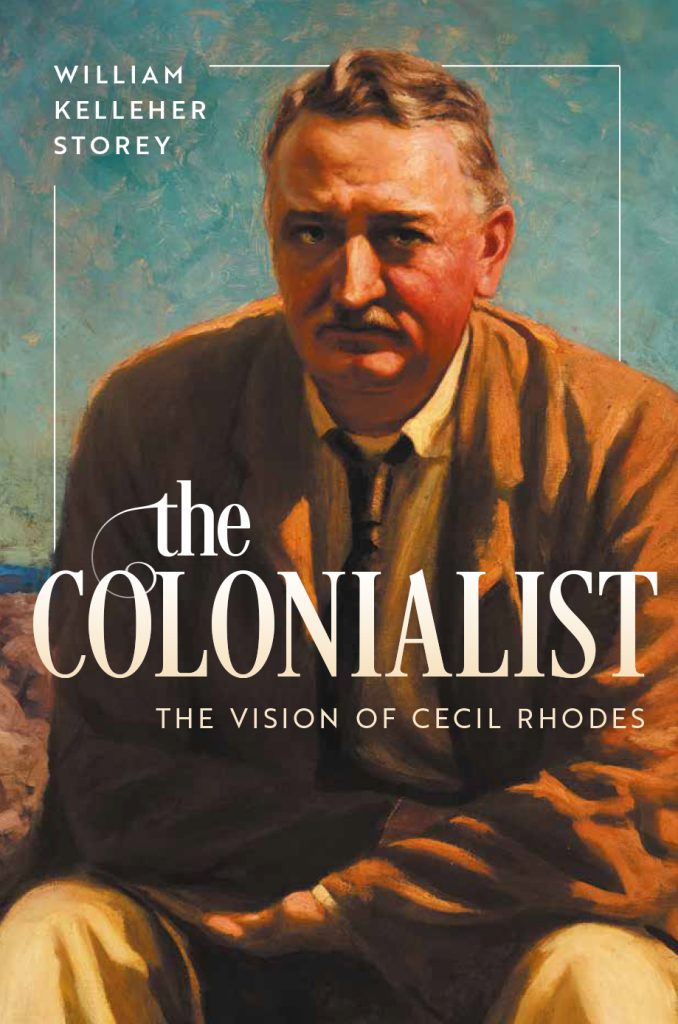Dr. William “Bill” Storey, longtime professor of history and Sanderson Chair of Arts and Sciences at Millsaps College, has published a groundbreaking biography that takes aim at one of the most polarizing figures in British imperial history: Cecil John Rhodes.
Storey’s new book, The Colonialist: A Critical Biography of Cecil Rhodes, is already earning international praise. The book looks beyond the familiar stories of diamonds and empire to explore how Rhodes’ vision of white supremacy was baked into the infrastructure of Southern Africa, from mines and farms to railways and telegraph wires.
“Rhodes was a larger-than-life figure,” said Storey. “But he built his empire on exploitation. His vision for Southern Africa depended on controlling land and labor, and creating a system that favored white settlers at the expense of Black workers. That story matters now more than ever.”
From the Lecture Hall to the World Stage
At Millsaps, Storey isn’t just writing history; he’s teaching it. His students get a front-row seat and directly benefit from the research, debates and historical questions he wrestles with on the page.
“It’s a gift to bring my scholarship into the classroom,” he said. “My students challenge me constantly, and they help shape how I think about the past and how it relates to the present. That’s what makes teaching at a college like Millsaps so meaningful.”
Students at Millsaps get what many undergraduates only wish for: access to professors who are not only experts in their field, but also actively shaping it.
Worldwide Rave Reviews
With The Colonialist, Storey is entering a worldwide conversation about the legacy of empire, and reviewers are taking note.
“A brave and learned book,” wrote A.N. Wilson in The Spectator. “It has never been related before in such detail, or with such impartiality or awareness of the rage which the very name of Rhodes inspires in African hearts.”
The Economist said, “Given his vexed legacy, and the scant understanding most have of what he actually did, Rhodes is a good candidate for clear-eyed biography. And Storey has produced just that.”
The Financial Times praised it as “a fine new biography… a fluent and compelling work,” noting how it “examines how Rhodes’s megalomaniacal visions of Anglo-Saxon racial supremacy… were embodied in the material infrastructure” of mining, communication and military expansion.
A Conversation Still Relevant Today
The Colonialist explores how Rhodes used wealth and political power to embed racial inequality into virtually all parts of life in Southern Africa, and how that legacy still influences the region today. What surprised Storey during his research?
“Many books have been written about Rhodes that focus on his role in Southern African politics,” he said. “But I found it surprising that previous authors hadn’t paid much attention to his impact on infrastructure; mines, transportation, cities, telecommunications and even the borders we see on the map today.”
Why Rhodes Still Matters
Cecil Rhodes remains one of the most influential and controversial figures of the British Empire. He created the Rhodes Trust, which funds the world-famous Rhodes Scholarships at the University of Oxford. He also orchestrated and executed land theft, labor exploitation and a long shadow of racial discrimination over South African society.
“You can’t understand modern South Africa without understanding Rhodes,” Storey said. “The systems he put in place didn’t disappear; they adapted. That’s why history matters.”
As student movements like Rhodes Must Fall challenge who we memorialize, The Colonialist offers vital context and critical insight into how empire shaped the world we live in.
“This book is a way to think about how the past lives in the present,” Storey added. “It’s not just about one man, it’s about how systems of power are built, and who pays the price.”
This kind of research-informed teaching is one of the defining features of a Millsaps education; students learn from the people writing the books, not just assigning them.



